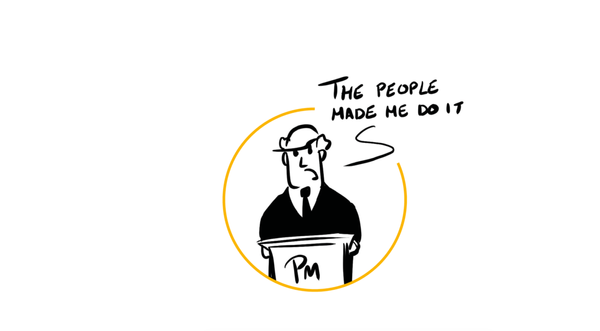Labour has a one way ticket to Switzerland
Charles Titmuss explains why Labour is doomed – and it's not all Jeremy Corbyn's fault

T he by-elections in both Stoke and Copeland were both called recently, due to their respective MPs resigning. As I’m sure you are aware, Labour lost the Copeland seat and held on to the Stoke seat, but suffered a reduction in the proportion of votes compared to 2015. This is viewed by many, myself included, as a crucial test of Labour’s appeal to the general public, particularly at a transformative time in Labour’s history.
Labour is of course under the leadership of Jeremy Corbyn, for some he is a saviour and hero of the left, and for others, he is its damnation. Many have linked his leadership to Labour’s struggle in the polls, blaming his inconsistent position on the EU, his weak stance on defence and NATO and his association with the left wing group Momentum, as well as the anti-Semitism scandal in the Labour Party. Others, most recently John Mcdonnell, have blamed the lack of unity in the Labour party, such as Tony Blair’s criticism of his leadership, as well as other criticism from within the Labour Party. It is important to note that since Jeremy’s election, there have been 11 by-elections, of which only 1 has been a loss for Labour.
When examining the current situation Labour is in, it is important to contextualise these results: they are by-elections and are not an indicator of how the nation will vote in three years’ time. With any luck, May will make domestic and foreign policy errors, and there is usually a trend towards unpopularity for the ruling party as its reign comes to an end.
However, it is possible to say that Labour is not in a good place. This is the first time since 1982 that an opposition party has lost a seat to the governing party in a by-election. In a recent poll (Opinium/Observer), Labour was predicted to win 30% of the votes compared to the Conservatives' 38%, likely leading to a large election loss. Whether Jeremy is entirely to blame for these low polling figures is the matter of contention.
I would argue that before the Labour Party elected Jeremy, it was already in crisis. It had lost the 2015 election – to a coalition and a Tory party that pushed through hard line austerity as its policy – and it had lost critical political capital to the SNP and UKIP. Jeremy wouldn’t have even been in contention if this were not the case. Labour under the leadership of Tony Blair and Gordon Brown taking the UK into the Iraq War, into Afghanistan, and most crucially through the 2008 Great Recession has greatly impacted Labour’s image. The impression that Labour is not good for the economy has stuck, and the perception that the Conservatives played a major role in cleaning up the mess is prevalent. Labour is still viewed by many as a pro-globalisation, pro-free market party, and in the aftermath of Brexit, this is a less electable position.
Jeremy Corbyn has not been able to shift this image that Labour is bad for the economy. He has simply added some extra problems that make Labour even more unelectable, chief among them that he is not a strong or effective leader. He has been unable to reconcile those members of his party that were not part of the membership explosion that resulted in his election and has also supported policies and positions that do not appeal to traditional Labour voters. Essentially, Jeremy is currently attempting to run the party in order to please the membership that elected him, as opposed to acknowledging that the wider electorate has much broader desires than those of the Corbynistas that form the base of his support. Jeremy is a man of principle, but it takes a man of compromise to be an effective politician and account for all points of view.
In my view, Labour winning the next election was always a long shot, for all the reasons previously mentioned. Unfortunately, the voters to whom Jeremy wants to appeal – the young and disenfranchised – do not vote in force historically and he is only further alienating those that would vote for him with his policies on Brexit, Trident, and the fact that he lacks the abilities of a leader that could truly unite the left and oust the Tories. A more reasonable expectation would be too ensure that an effective opposition is maintained, but he is simply failing in that regard, and a lack of opposition can be devastating to the democratic process.
Of course the title of this article is inflammatory. I’m not really suggesting that he should register for the Dignitas™ treatment, but looking at it this way, Labour was already on life support, and Jeremy is helping to assure that the Labour Party is on the train to Bern. He really is committed to leading the party through thick and thin, he will be there to hold its hand as it drifts off into the black abyss of irrelevance.









